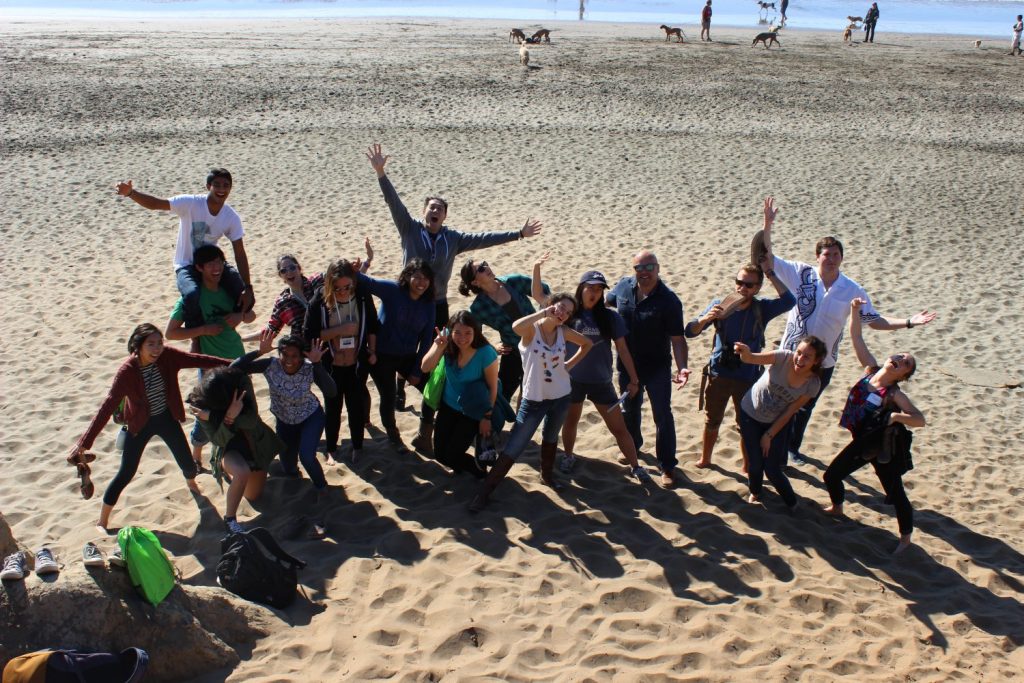Regional Field Trip

SEEDS students enjoying some fun in the sun during a Regional Field Trip in the San Francisco Bay area organized by the SEEDS Chapter at Stanford University. We had students from UC Davis, San Jose State University, Stanford University, and UC Berkeley participate in this opportunity.
Expectations
SEEDS Chapters across the US can now host a SEEDS Regional Field Trip to an ecologically significant site within a six-hour drive of their institution. These sites may include:
- Long Term Ecological Research (LTER) Sites
- Federal or State Research Sites
- University or other research stations. Here is an example.
Chapters within the region are invited to joint the field trip. These field trips are usually scheduled on weekends (Thursday to Sunday) during the academic semester.
The benefits for a Regional Field Trip are:
- Connect students with local scientists and research sites outside of their institutions.
- Establish long lasting relationships between SEEDS Chapters within the same region.
- Lower the cost of travel expenses.
- Allow a larger number of students to participate in SEEDS opportunities.
Don’t know your Chapters Region… check out the Regional Chapter Map!
Field Trip Agenda
The agenda for regional field trips must include all the core elements of the SEEDS field trips
Core elements of field trips include
- Theme – the theme for field trips is always related to the site that students will visit.
- Ecology Workshops – Relating to the theme of the meeting. These are intended to educate the group about the research that is being conducted at the site.
- Hands-on Field Experience – Research location visits and data collecting and analyzing by students.
- Career Panel – a panel of senior scientist, recent graduate and graduate students talking to students about their career paths and challenges along the way.
- reflections on motivations and challenges they face in science, and
- time for group daily journal entries which are then compiled into a single report
Past reports can be found here: https://ecologicalsocietyofamerica.org/seeds/programs/fieldtrips/past.php
Selection Criteria
Only SEEDS chapters in good standing are eligible to apply. Up to $5,000 is available based on actual expenses. Chapter faculty advisers and chapter leaders will determine participants for the field trip based on academic achievement (GPA), student interest in ecology and potential for contributing to the chapter. Additional expectations are outlined below.
To receive funding:
At least 75% of student participants must be freshmen and sophomore students. Field trip proposals must include a significant number of participants from underrepresented minority groups in ecology. Preference is given for those with no prior experience in research.
Chapters without institutional resources or that need partial funding to conduct such field trips will be given priority.
Funding can only be applied to students and chapter adviser travel expenses. A graduate student SEEDS alum may be invited if the funding allows.
One chapter faculty adviser and one or two chapter student leaders (undergraduate juniors or seniors) are also expected to participate and assume a leadership role during the field trip.
ESA staff will provide guidance on the program agenda for the field trip.
How to proceed?
Send an email to: seeds@nullesa.org with your questions, ideas and concerns.
Other Field trip Opportunities
SEEDS also offers a National Field Trip Program.